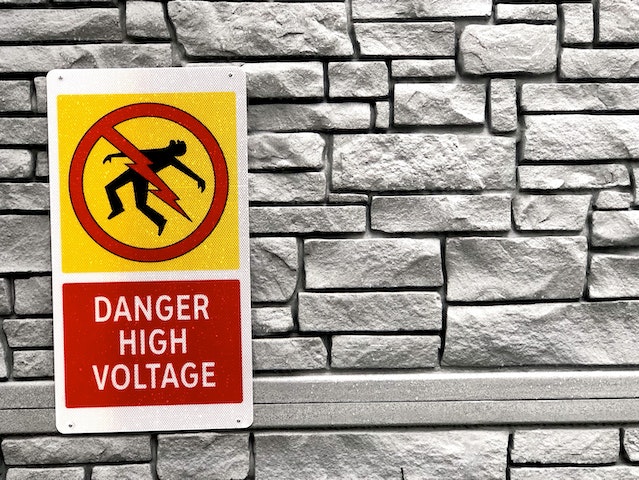

Many people have heard of “whiplash,” but fewer know exactly what damage a whiplash injury does or how debilitating the effects of whiplash can be. If you’re suffering from head, shoulder, or neck pain after a car accident, it’s important to see a doctor to have your symptoms examined and treated.
Although whiplash is often treated lightly, the symptoms of these injuries are no simple matter. If you’re struggling to manage pain, stiffness, and other symptoms after an auto accident, you know how tough your daily life has become. Tasks like work, errands, or hobbies that were once enjoyable may become difficult or even impossible to complete.
Fortunately, you don’t have to fight alone. Working with an experienced New York car accident lawyer can help you fight for the compensation you deserve, while also ensuring your legal rights are protected. To learn more, contact Zlotolow & Associates today to schedule a free, confidential consultation.
“Whiplash” is the name given to a neck injury caused by the head moving back and forth with sudden force. The injury is also known as a neck sprain or neck strain. According to the Mayo Clinic, the most common cause of whiplash is rear-end auto accidents, although other types of motor vehicle accidents can also cause whiplash injuries.
The “backward and forward” motion of a whiplash injury damages the internal structures of the neck. Depending on the amount of force involved and other factors, the soft tissues, bones, spinal discs, muscles, nerves, or ligaments may also be injured.
Unlike some other car accident injuries, whiplash symptoms may not be obvious immediately after the accident. Some people do not fully experience the symptoms of whiplash for 24 to 48 hours after the injury occurs.
Common symptoms of whiplash include:
Some people also experience cognitive symptoms, like blurred vision, ringing in the ears, sleep disturbances, or problems with mood, memory, or concentration. An X-ray or similar imaging test may be necessary to rule out broken bones or other problems and to diagnose whiplash correctly.
While whiplash is most common in rear-end accidents, other types of car crashes can cause whiplash injuries. Sometimes, even a “minor” crash may cause whiplash. A 2008 study published by the Association for the Advancement of Automotive Medicine examined reports from 105 minor rear-end crashes. Researchers found that 46 survivors of these motor vehicle accidents, or 40.6 percent of the total number of injured drivers and passengers, reported suffering neck sprains or other neck injuries after the accident.
Although many people who experience whiplash injuries recover in a few months, others have more difficulty returning to full health. Chronic pain and other complications may linger. When whiplash is not the person’s only injury, full recovery may be even more complex, with different injuries impacting healing in various ways.
Although whiplash is one of the most common injuries suffered in car accidents, it is also one of the most poorly understood, according to MedScape. The Quebec Taskforce on Whiplash-Associated Disorders offers a five-point scale for classifying whiplash injuries:
Like many other types of car accident injuries, the sooner a whiplash injury is diagnosed, the sooner it can be treated. Treatment for a neck sprain is similar to treatment for other types of sprains. An injured person may be given a support device for the sprained area, such as a soft neck collar. They may also be prescribed medications like anti-inflammatory pain relievers to help reduce pain and swelling or muscle relaxants to help reduce spasms. In addition, treatments like massaging the neck area or certain exercises can help reduce the impact of systems and speed recovery.
The Mayo Clinic estimates that most people who suffer whiplash injuries recover within a few months. In some situations, however, whiplash injuries are more complicated. Some patients may continue to experience pain, loss of motion, or other symptoms for months or even years after the injured tissues have healed.
Although it is difficult to predict who will have chronic pain or other complications, a higher rate of complications is correlated with symptoms like rapid pain onset, severe pain, headaches, and pain that radiates into the arms. Patients who do not receive prompt medical care, or who have a past history of neck injuries, may also be at a higher risk of developing complications.
Many people who suffer whiplash in a car accident also suffer a concussion. Some of the symptoms of whiplash, such as difficulty with thinking, head pain, and dizziness, are also symptoms of a concussion.
Medical research into the link between whiplash and concussion has revealed several connections. However, the relationship between whiplash and concussion is complex. It is, however, possible and even common for a person involved in an auto accident to experience both, especially if a blow to the head occurs as the head is being whipped back and forth by the force of the collision. Keeping track of symptoms and getting prompt medical care can help your doctors more fully understand the injuries you’ve suffered and prescribe appropriate treatment options.
After a car accident, keeping an injury journal can help your recovery in several ways. Your doctors can use the information to see how you are responding to treatment and may be able to identify better treatment options for you. Your car accident attorney can use the information in your journal to build a case that establishes the full extent of your injuries and argues for the maximum compensation you are due. And you can use your journal to maintain a sense of perspective and control over the healing process.
Start your injury journal by entering the following information:
Many people find that whiplash injuries interfere with their thinking or memory. If your symptoms include arm or hand pain, writing may be difficult. A trusted family member or loved one can help you take notes, or you can use a computer or smartphone to keep your journal if you prefer. You can even keep an audio “journal” by recording daily clips of yourself speaking this information, if talking is more convenient for you. Make sure you back up electronic files regularly so you do not lose your hard work.
Attorney Scott Zlotolow has spent over two decades representing clients who have suffered injuries in auto accidents. Scott and the attorneys at Zlotolow & Associates are dedicated to fighting for the full compensation every client deserves. To learn more about how working with a car accident lawyer can help you, call us today for a free consultation.




© 2024 Zlotolow & Associates. All rights reserved.